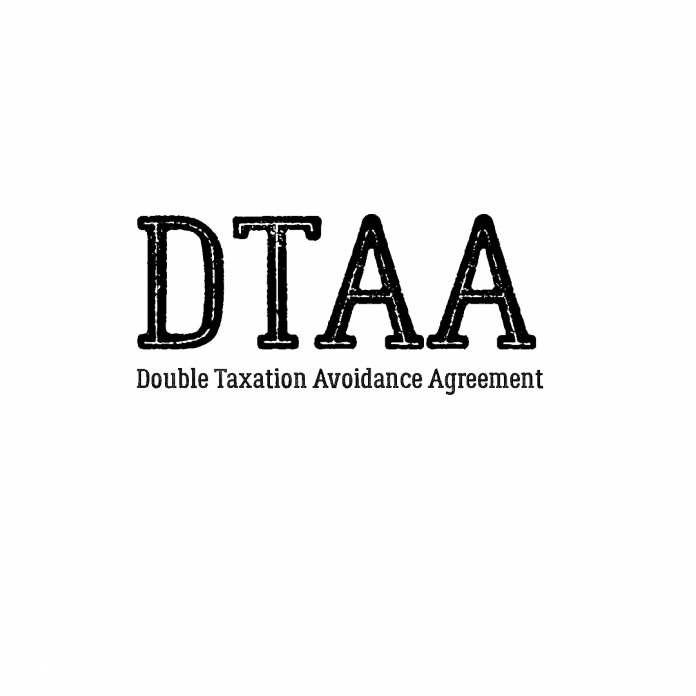Double taxation avoidance agreement or as abbreviation goes DTAA is meant to save Non-Resident Indians from paying taxes on their same Income twice. It is mainly meant for NRIs who have their sources of Income spread across different countries, and thus helps them in not to get taxed for the same income in all the countries. (Country of Residence and the Source country where the income is being generated)
Say for example You are an NRI living in the USA. You have some NRO deposits in India. Indian tax laws require deduction of TDS @ 30% on the Interest payments in that account, whereas the US also charge tax on the global Income earned. This way you may have required to pay taxes on the same interest income in both India and the USA. But here Double Taxation Avoidance Agreement will be at your rescue. You can avoid paying double taxes by taking benefit under DTAA.
Understanding Double Taxation Avoidance Agreement (DTAA)
In Simple words, DTAA is a treaty between India and other countries where they agree not to tax the assesses same income again if it has already paid taxes equal to or higher in the source country than what it would have paid in the Resident country.
So, it means the maximum tax which a taxpayer has to pay in any case cannot exceed the higher of the tax rate in force in either of the two countries.
DTAA does not eliminate Tax payments in entirety. It just helps to avoid getting it doubly taxed.
Double taxation avoidance agreement, besides saving from double taxation also benefits in the Lower Withholding of taxes (TDS). It depends on the specific agreement with the country of your residence.
For e.g. NRIs are subject to TDS @30% in case of Rental Incomes, Interest Income etc. But if the DTAA with the country of Residence of NRI states the lower TDS rates then one can submit the documents required to the Payor and Tax authorities and claim lower TDS benefit. (Read: TDS on NRI Investments)
How to Claim Double taxation avoidance agreement (DTAA) benefit?
The Incomes that are generally covered in DTAA which NRIs can claim relief on are:
- Capital gains
- House property
- Interest Income
- Royalty Income
- Salary earned in India
- Income from Services provided in India
One has to go through the DTAA treaty between India and their Country of Residence and find out TDS rates that are settled between them. Or You may refer to Taxguru article Click here
To claim the benefit of the lower TDS rates, the assesses have to submit the tax residency certificate, declaration form 10F and PAN card copy with the respective institution. In case of TDS on Rental income, NRI assesses have to file application u/s 195(3) to jurisdictional tax officer to obtain a certificate of NON-deduction of TDS or Lower TDS.
If Income tax officer grants the waiver then NRI can submit that waiver certificate to respective bank or property buyer or tenant to not deduct TDS on high rates.
But do keep in mind that this is just the reduction of TDS in the source country, and this will have to show at the time of tax filing with the resident country and pay the remaining taxes as per the Tax rules over there. However, due to DTAA, the TDS deduction can be claimed as Tax Credit there.
There is also a certain Income which is Exempted to be taxed in the Source country. Refer the agreement or consult some expert on this subject.
(Also Read: Tax planning Tips for NRIs returning to India)
Conclusion:
DTAA is a very good tax planning tool. How it applies to you, and will it be of any benefit to you that needs to be seen. India has Double taxation avoidance agreement with more than 90 countries. And every agreement is different, rates decided are different, so what applies in your case depends on that specific agreement with your country of Residence.
Disclaimer: I am not a tax expert. This post is written after referring to different other articles on this subject. Please consult a Chartered Accountant, an expert in International taxation to know more about DTAA.







 Manikaran Singal is the founder and Chief financial planner at Good Moneying Financial Solutions. He is a CERTIFIED FINANCIAL PLANNER CM and SEBI registered Investment adviser (Regd no. INA 100001620). He’s having 20+ years of experience in financial services space.
Manikaran Singal is the founder and Chief financial planner at Good Moneying Financial Solutions. He is a CERTIFIED FINANCIAL PLANNER CM and SEBI registered Investment adviser (Regd no. INA 100001620). He’s having 20+ years of experience in financial services space.

